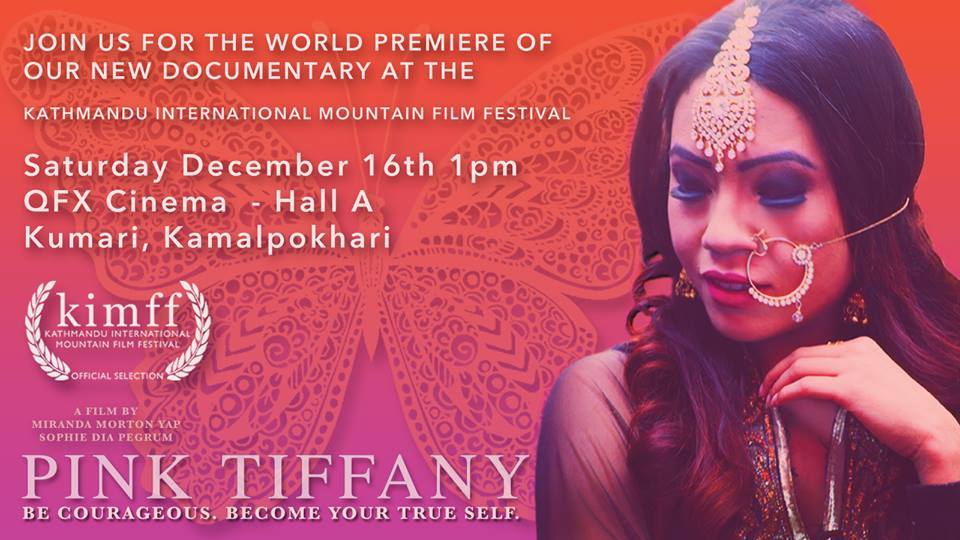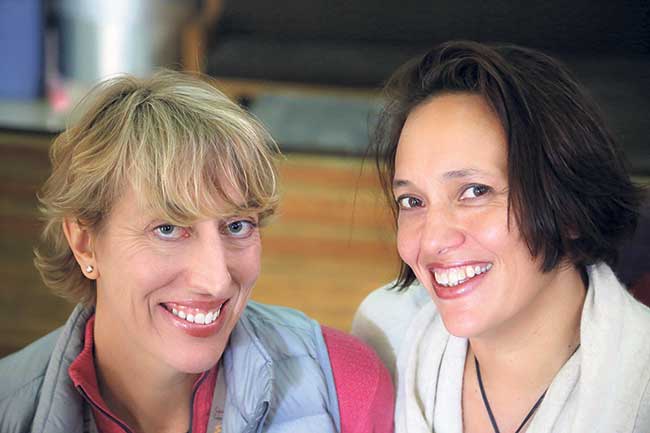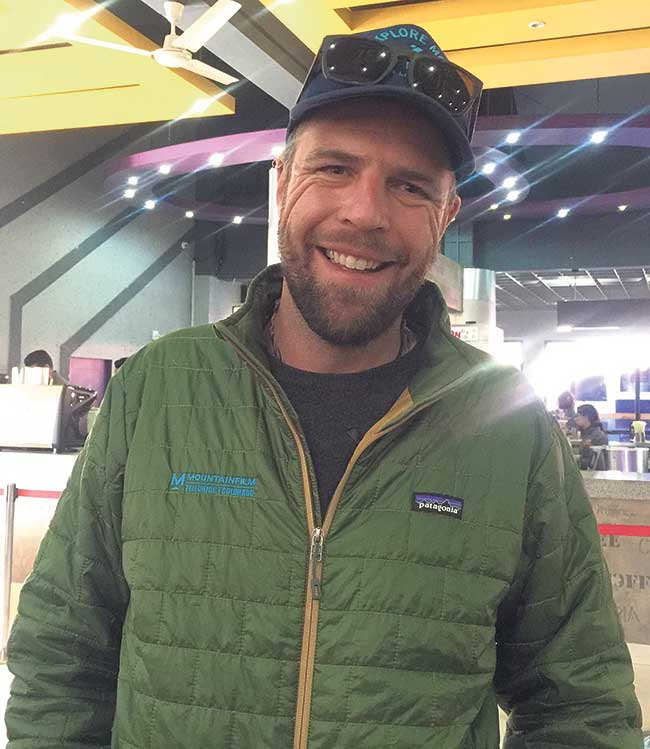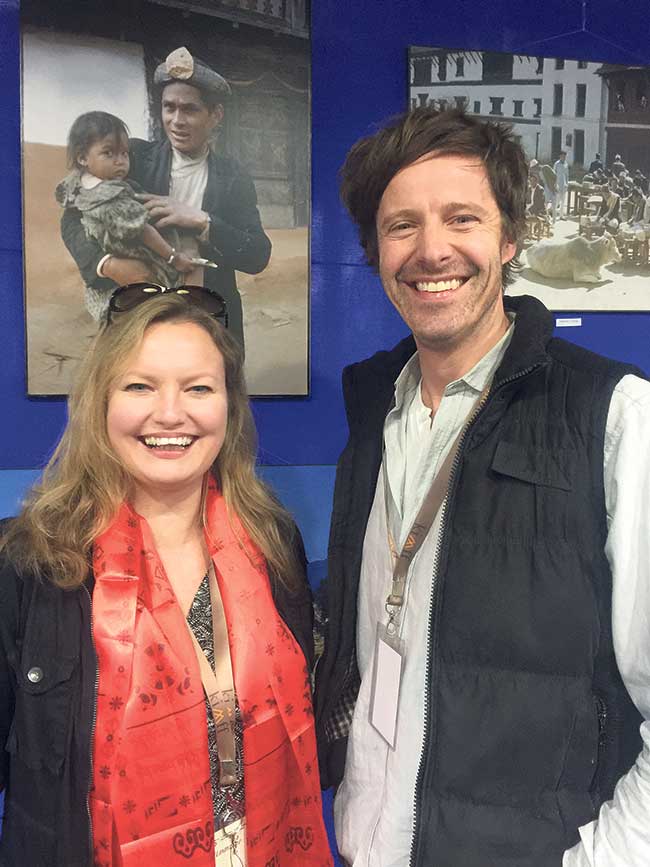Celebrating local craft in Jewelries
6 years ago

6 years ago

6 years ago

6 years ago

6 years ago

6 years ago

KATHMANDU, Dec 16: With more than 70 films from 37 countries, the 15th Kathmandu International Mountain Film Festival (KIMFF) kicked off on December 14 at QFX Kumari Cinemas, Kamalpokhari. The festival has been a platform for artists, filmmakers and audiences alike to discuss several arrays of documentaries, fiction, short films, experimental films and animation that tell the stories of people from around the world.
My City’s Nasana Bajracharya caught up with three of the international directors and producers who shared their love of working in Nepal and came to KIMFF with stories of different communities within Nepal. They shared their attempt to showcase Nepali society with a different perspective through their films.
 Miranda Morton Yap and Sophie Dia Pegrum
Miranda Morton Yap and Sophie Dia Pegrum
Co-Producer and Director, ‘Pink Tiffany’ (38 mins)
Tell us about the movie in brief.
‘Pink Tiffany’ features the ups and downs of Meghna Lama, a transwoman. She works as a model, a businesswoman, and an activist for the LGBTI community. In the movie, you can see how bravely she embraces her transformation from a son to a daughter, and how her family supports her spirit. Through the film, we have tried to paint a picture of the circumstances that a transwoman has to go through in Nepal.
How was your experience shooting the film?
We met Meghna only last year. Every day, I used to watch her from my window and found her personality very intriguing. My team got in touch with Meghna and learnt her story. We shot from last December to April. She was open about her being a transwoman and surprisingly her family too agreed to speak about it with us. We also came to know that Meghna had opened her second restaurant -- Pink Tiffany in Thamel. So the story as a whole is an inspiring one and we thought it needed to be told.
In your observation, how do Nepali people observe the LGBTI community?
Nepal is progressive in its legal rights about the LGBTI community. But on ground level, the society still sees them as an inferior community. Most of the transwomen do not get socially dignified jobs because of the prevailing biasness and pre conceived notion against certain genders. We can find many transwomen being involved in prostitution for want of better employment opportunities. We need to learn to see other people for what they are, what they believe in, their ideas and not which gender they belong to.
How important do you think documentaries are for storytelling?
These films portray the hopes and dreams of other people. For many it is also an escape, a means of entertainment. But it can be more than that and it can be used to raise awareness. We can capture stories from different communities and put them under different genres, to inform others about different parts of life.
 Ben Aires
Ben Aires
Producer, ‘The Last Honey Hunter’ (35 mins)
Tell us about the movie in brief.
Protagonist Mauli Dhan Rai is a honey hunter in Hongu River Valley preserving the fast dying tradition in the hills of eastern Nepal. In the movie, he talks about his past life, how he started working, what working as a honey hunter means to him, including his beliefs and regrets, and how they extract the honey. Also in major parts of the film, you will get to see the beauty of Nepal.
How was your experience shooting the film?
I met Mauli Dhan when I was working with an organization some 10 years ago. I wanted to do his story but he was not convinced to be featured. I went back, again and again, and it took me a lot of convincing. We shot for 13 months and did many interviews with Mauli Dhan as well as his team. For all the shots, we used drones, GoPro and cameras tied to the ropes. At times, we had to refrain from shooting near the hives and wait.
In your observation, how do Nepali people see honey hunters?
During the times when Mauli Dhan goes honey hunting, he is a hero. When not doing his job, he is just another socially unaccepted man belonging to a marginalized community. He struggles to work and survive in his day to day life. Most people don't even know that people like him exist and this should be a window for the common people to know how and why honey hunters do what they do and learn about people like him.
How important do you think documentaries are for storytelling?
I think documentaries are important because you get to celebrate different cultures. Not only for fun, but documentaries can be a medium to inspire and instigate change. It can help change the way you think and see things.
 Zara Balfour and Marcus Stephenson
Zara Balfour and Marcus Stephenson
Directors/Producers, ‘Children of the Snow Land’ (93 mins)
Tell us about the movie in brief.
It revolves around the story of children from Dolpa and Humla, who came to Kathmandu at the age of six to study in Snow Land School, away from their parents. The film shows the journey of these children when they go back home and how they as well as their families react as they see each other after 10 years. The film also portrays how difficult it is for them to cope up in a life that is different than of Kathmandu.
Why did you choose this story for your film?
When we came to Nepal five years ago for another film, we got in touch with the organization that has been sponsoring such children's travel expenses. The sole thought of parents not being able to see their children for 10 long years made me want to tell their stories to the public. We hoped the story would be a means for people, who watch this, to be grateful and happy for the lives they have.
How was your experience while shooting the film?
We shot for two years in the villages of Nepal for this film. It was the best experience of my life; very rewarding. We followed the children and in fact, they also helped us in filming. They were given short training in filmmaking and most of the scenes in the film were shot by them. We did a lot of trekking in due time and got to see the village life and their reactions.
How important do you think documentaries are for storytelling?
Movies of these genres tell the stories of real people. There are still many more stories that we can work on. It can be a great way to educate people about another way of life, different culture and simultaneously broaden their mind and give them the experience of travelling from their seats. But if they compete directly with commercial movies, they are sure to get sidelined. So we need film festivals where documentaries can get the exposure and the audience.
Leave A Comment